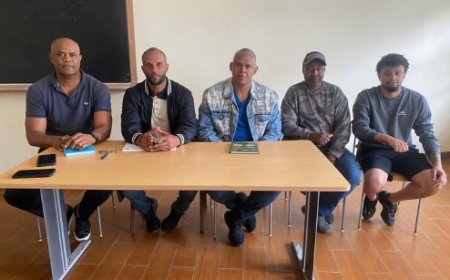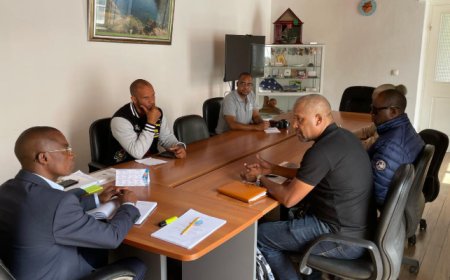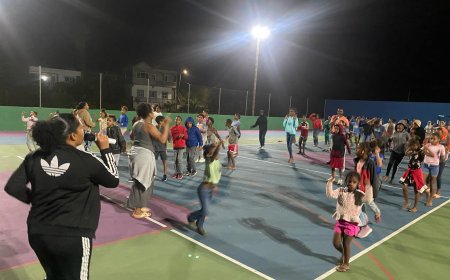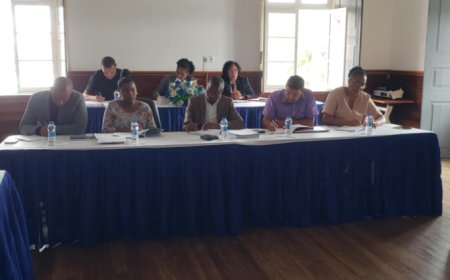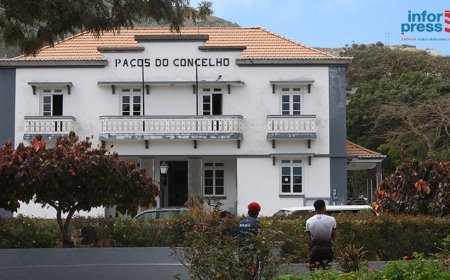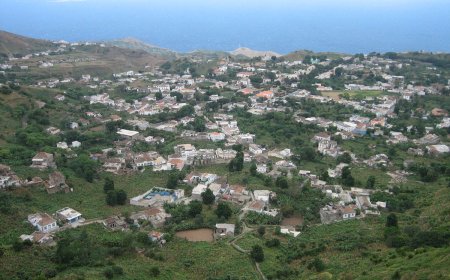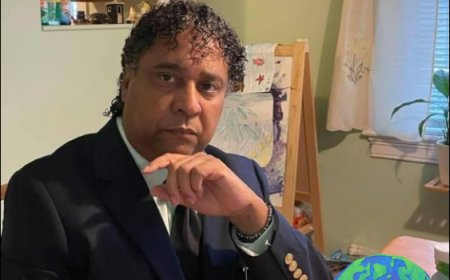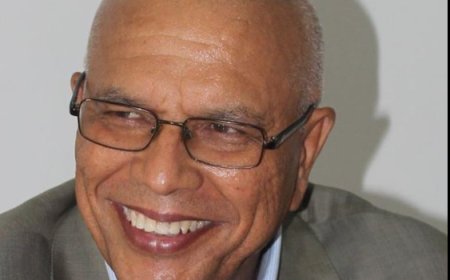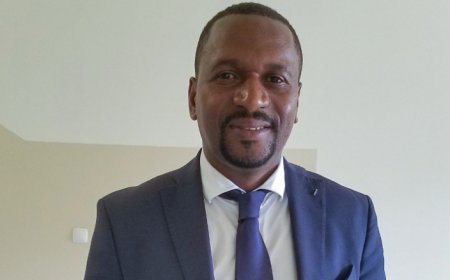Is the maintenance of the Brava Primary Schools the responsibility of the Brava City Council? The case of the Nossa Senhora School and the situation of the Sena Barcelos School in Nova Sintra
The maintenance of basic schools in Brava is, in fact, a responsibility of the Brava City Council, as stipulated by Law nº 134/IV/1995, of 3 July. This article will explore in detail how the legislation addresses this issue and the impact of this responsibility on educational management in Cape Verde, but the article is interested in the cases on Brava Island, namely Escola Básica de Nossa Senhora do Monte and Escola Sena Barcelos.
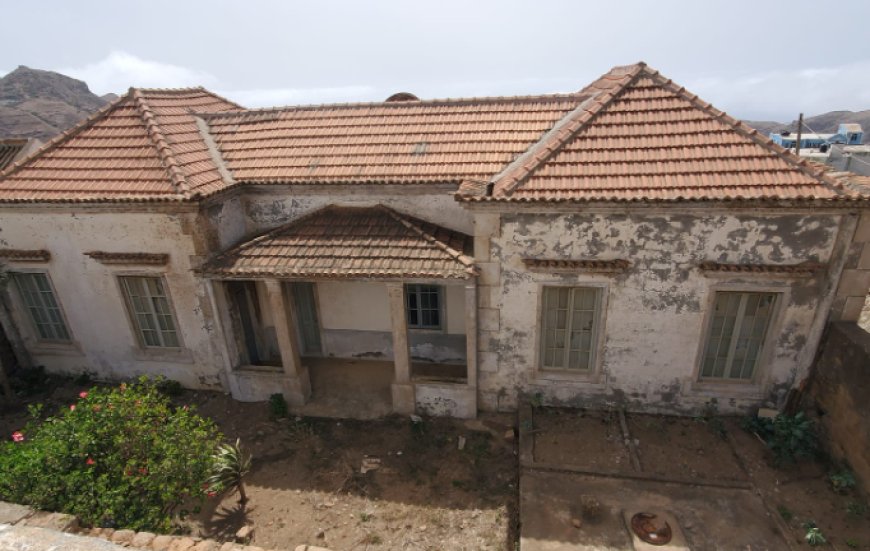
Law No. 134/IV/1995, of July 3, establishes the powers and responsibilities of municipalities in Cape Verde. In article 34, specifically in paragraph a), the law gives municipalities the responsibility for "construction, equipment, management and maintenance of infrastructure for pre-school education and basic education". This standard is fundamental to understanding the role of Municipal Councils in the administration and maintenance of basic schools.
According to the law, Brava City Council is responsible for the construction of new school infrastructures when necessary, as well as for their adequate equipment. This includes the acquisition of furniture, teaching materials and other resources necessary for the operation of schools. Proper construction and equipment of schools are essential to creating a conducive and safe learning environment for students.
The management of school infrastructure is another critical responsibility assigned to the City Council. This encompasses the general supervision of school operations, including the administration of resources and the coordination of educational and administrative activities.
Maintenance, in turn, involves carrying out repairs and maintaining school facilities. This includes the maintenance of buildings, electrical and plumbing systems and other essential infrastructure. Lack of maintenance can lead to problems that directly affect the school environment and, consequently, the quality of education offered.
One of the main challenges faced by Municipal Councils, including Brava Municipal Council, is the limitation of financial and logistical resources. The construction and maintenance of schools requires significant investments, and municipal councils often face difficulties in allocating sufficient resources for all their responsibilities. Effective management of financial resources and the search for partnerships and additional funding are crucial to ensuring that school infrastructures are well maintained.
In addition to the responsibilities established by law, the City Council must coordinate with the Ministry of Education and other governmental and non-governmental entities to ensure that educational policies are effectively implemented. Collaboration between different levels of government and sectors can help address common challenges and improve the quality of educational infrastructure.
Proper maintenance of elementary schools is vital to ensuring a safe and efficient learning environment. Well-maintained facilities contribute to the health and safety of students and school staff. Furthermore, a well-maintained school environment can positively influence students' academic performance and general well-being.
Although Law No. 134/IV/1995, of July 3, assigns responsibility for the construction, equipment, management and maintenance of educational infrastructures to municipalities, including Brava City Council, practice has demonstrated a different reality. In practice, responsibility for these activities has predominantly been assumed by the Government, especially through the Ministry of Education.
The Ministry of Education has played a crucial role in building and equipping basic schools. Many of the new school infrastructure and investments in equipment are carried out directly by the Government. This involvement of the Ministry of Education includes coordinating construction projects, purchasing materials and supervising works. In many cases, the central government ensures that the necessary financial and technical resources are available to carry out these tasks, which may reflect an attempt to standardize and centralize the quality of educational infrastructures across the country.
The management of basic schools, although foreseen as a municipal responsibility, is also frequently supervised by the Ministry of Education. This is due to the need to ensure that educational policies and guidelines are uniformly applied throughout the national territory. The Ministry of Education coordinates administrative and pedagogical aspects, ensuring that schools follow national curricula and meet established standards.
The maintenance of school infrastructure has, in many cases, been the responsibility of the central government. The Ministry of Education and other government agencies are often responsible for ensuring that schools are kept in good condition. This may include carrying out repairs, upgrading facilities and managing maintenance contracts. Centralizing these activities allows for a more uniform and coordinated approach, although it can also result in challenges in responding to the specific local needs of each municipality.
Centralizing construction, equipment, management and maintenance responsibilities can, on the one hand, provide a more standardized and efficient approach. However, it can also result in challenges related to responsiveness to specific local needs. Brava City Council and other municipal councils may have limitations in adapting to the particular circumstances of their localities, as many decisions are made at a centralized level.
Coordination between central government and municipal councils is crucial to ensure that local needs are met effectively. Communication and collaboration between these levels of government can improve resource allocation and implementation of educational policies.
3. Impact on the Quality of Education
The way responsibilities are distributed can directly impact the quality of education. While centralization can ensure uniformity, it is important that the solutions adopted take into account the specific needs of local communities to ensure that all schools provide an appropriate and safe learning environment.
Despite Law No. 134/IV/1995, of July 3, assigning responsibility for the construction, equipment, management and maintenance of basic schools to municipal councils, practice has shown that these responsibilities are often assumed by the central Government, through the Ministry of Education. This centralized approach seeks to ensure uniform standards and efficient management, but it also raises questions about responsiveness to local needs and coordination between different levels of government. The balance between centralization and decentralization is essential to ensure that all schools can provide a high-quality learning environment suited to the needs of their students.
Conclusion
According to Law No. 134/IV/1995, of July 3, Brava City Council has the legal responsibility for ensuring the construction, equipment, management and maintenance of educational infrastructures at pre-school and basic levels. While this responsibility comes with significant challenges, including the need for financial resources and effective coordination with other entities, proper maintenance of schools is crucial to providing a safe and stimulating learning environment. Success in carrying out these responsibilities depends on the City Council's ability to manage resources effectively and collaborate with other stakeholders to meet the educational needs of the community.






